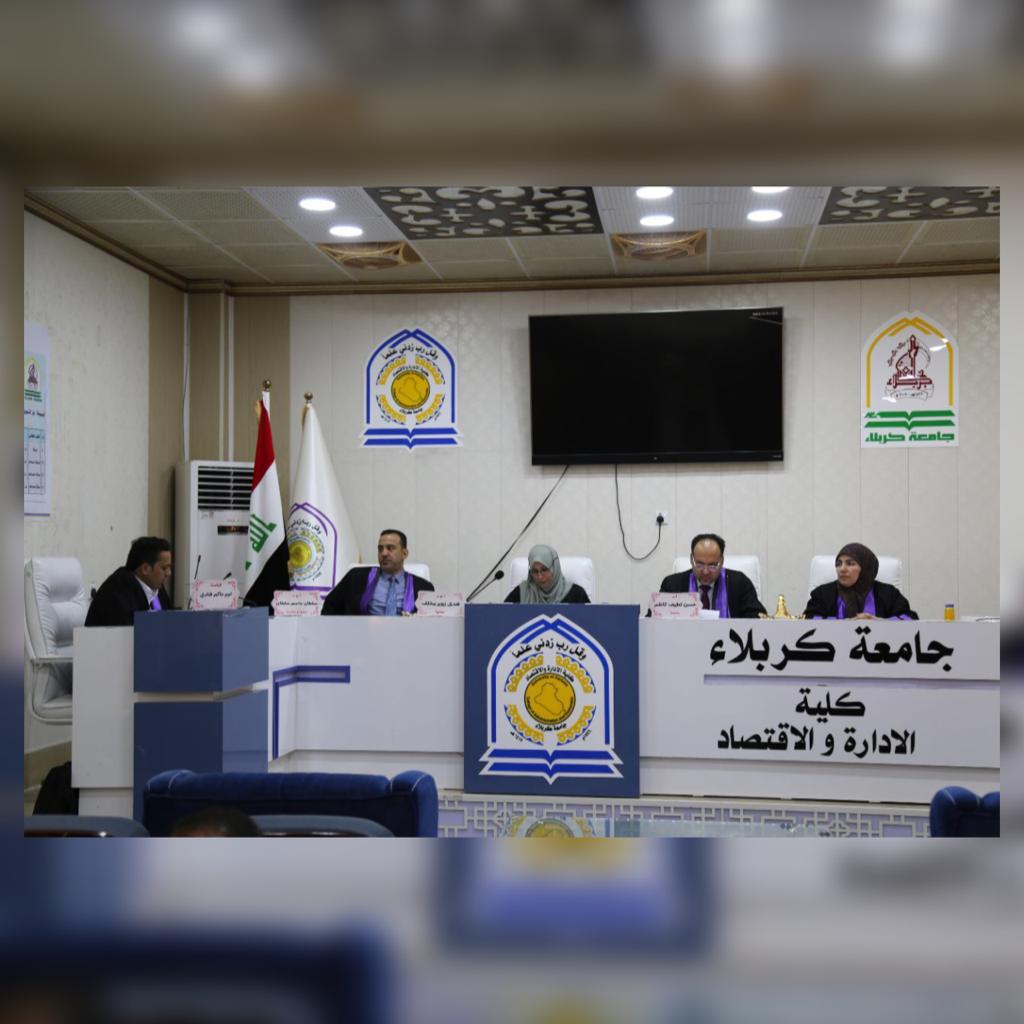The role of green finance in reducing climate change
The experiences of selected countries with the possibility of benefiting from them in Iraq
Subnitted By
Emeer Hakim Hadi Al-Waeli
To the Council of the College of Administration and Economics at the University of Karbala, which is part of the requirements for obtaining a master’s degree in economic sciences
Supervised by
Asst. pro. Dr. Sultan Jassim Sultan Al-Nasrawi
Abstract
During the past twenty-five years, the phenomenon of climate change has emerged remarkably as a shock that had negative economic repercussions as a result of global warming and the increase in the concentration of greenhouse gases that cause it. There was an assertion that climatic changes pose a real threat to development and economic growth, so exposure to climatic shocks such as (high temperatures, accumulation of carbon dioxide and greenhouse gases, desertification, climatic disturbances, acidification of the seas and oceans, etc.) It impeded economic activity, threatened the lives of millions of people, and hindered efforts to combat poverty, in addition to the negative effects that these climatic shocks had on industry, agriculture, tourism, services, and other sectors. International financial organizations and institutions (the World Bank, the International Monetary Fund, the International Finance Corporation and other institutions) have tried to search for the necessary funding to address this phenomenon by creating green financial tools such as green funds, green shares, and environmentally friendly investments (sustainable investment). In this context, green finance has witnessed remarkable growth over the past years, and green bonds were the fastest growing, reaching about $296.5 billion in 2020 compared to $800 million in 2006. As for the Iraqi economy, which has been described as one of the most fragile countries in the Middle East and North Africa, it has witnessed, during the past years, tangible climatic changes, as temperatures recorded dangerous rises, water levels decreased, rain receded, desertification increased, and the concentration of gases, especially dioxide gas, increased. carbon. In light of this, the letter reached a set of conclusions and recommendations. The conclusions were: that despite taking some steps to mitigate climate change in Iraq, represented by government initiatives and the Central Bank of Iraq, it is noticeable that there is no trend towards building a green financial system in order to transform and move towards an economy that takes into account Climate changes and mitigate their severity, and climate shocks have become a major challenge facing the global economy in the twenty-first century and represent an obstacle to efforts to achieve sustainable development goals. Green finance markets (especially green bonds) have witnessed significant growth despite their young age, as statistics indicate that the volume of Green bonds to about $296 billion by 2020. While the letter reached a number of recommendations: the need to work on benefiting from the experiences of the sample countries in the field of using and trading green financial products in order to build an economy with low emissions and reduce climate changes and adapt to them, and Iraq must also take advantage of the opportunity for high global oil prices during the two years In the past two years, in order to move forward to achieve economic diversification, reduce dependence on oil, and shift towards renewable energy sources that are free of emissions, and the need to work on developing long-term strategies, in cooperation with international organizations and institutions, and benefit from their experiences in order to take appropriate measures to reduce climate changes and adapt to them.































































